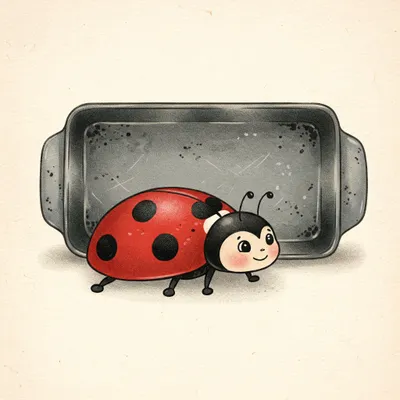Ladybird Ladybird

Lyrics
Your house is on fire and your children are gone,
All except one, and her name is Ann,
And she hid under the baking pan.
History and Meaning
The nursery rhyme "Ladybird, Ladybird, Fly Away Home" is a classic English Nursery Rhyme. The rhyme sometimes substitutes "ladybug" for "ladybird" (particularly in North America) and sometimes altering the details about the children.
The most widely accepted interpretation connects the rhyme to agricultural practices. Historically, after harvesting crops like hops or clearing fields, farmers would often burn the remaining stubble to clear the land and kill pests. Ladybirds, being beneficial insects that prey on aphids, were valued, but their larvae might still be present on the plants being burned. The rhyme, therefore, could be seen as a literal warning or charm directed at the adult ladybird, urging it to escape the impending field fire ("Your house is on fire") which would inevitably harm its young ("your children are gone"). This ties the rhyme directly to the cycles of farming and the interaction between humans and the natural world.
While the agricultural explanation is popular other (less likely) theories exist. Some have speculated about links to religious persecution (associating "Lady" with the Virgin Mary and the need to flee danger) or specific historical fires.